Background
At the dawn of the twenty-first century, Shakespearean scholars from Asia convened at international conferences to engage in meaningful dialogue about their shared scholarly pursuits. Among the notable events was the seminar “Shakespeare in Non-Anglophone Countries,” led by Sukanta Chaudhuri and Lim Chee Seng at the 2001 World Shakespeare Congress in Valencia. This was followed by the 2002 workshop “Shakespeare Performance in the New Asias” in Singapore, organized by Dennis Kennedy and Yong Li Lan, which focused on the dynamic reinterpretations of Shakespeare’s works within Asian contexts. Another significant gathering was the seminar “Re-playing Shakespeare in Non-Western Theatre Forms,” held at the 2006 World Shakespeare Congress in Brisbane.
These events highlighted the growing global interest in Shakespeare’s cross-cultural adaptability and the unique contributions of Asian scholars to the field. Meanwhile, since 2007, the NTU Shakespeare Forum in Taipei with its annual international conferences became a hub for Asian Shakespeareans. Some of them regrouped in London for “Localizing Shakespeare in Asia,” a seminar led by Bi-qi Beatrice Lei at the British Shakespeare Association’s conference in September 2009.
2012
During her visit to Stratford-upon-Avon in August, Bi-qi Beatrice Lei sent an email to Shakespeareans from Asia and beyond:
Perceptibly, Asia has impacted the studies and performances of Shakespeare, even in the Bard’s hometown. This can only be attributed to collective and continuous efforts by many: in the past decade, there has been increasing exchanges and collaborations among Asian Shakespeareans, and between Asia and the rest of the world. Given the vastness and diversity of Asia, the richness of its scholarship and theatres, however, I believe we can, should, and must do more. I think it is high time that we went for a formal association.
She described her vision—a non-profit organization dedicated to researching, producing, teaching, translating, and promoting Shakespeare from Asian perspectives, holding biennial international conferences in Asian locations. Many responded with enthusiasm.
In December 2012, foundational members met in Tokyo, at a conference “Shakespeare and Popular Media” co-organized by Minami Ryuta and Yoshihara Yukari, to discuss the name of the organization and the constitution. With the foundational members’ support, the ASA Preparatory Office was founded in Taipei. A public call for participation was distributed.
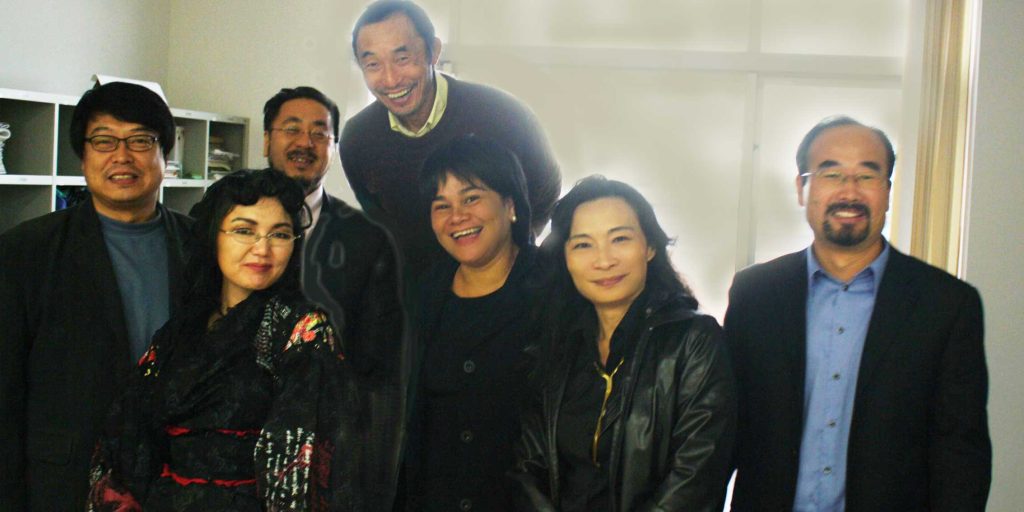
2013
On 1 January 2013, the ASA website went live, with an introduction, the constitution, a list of the founding members, a membership signup portal, and an open call for nominations for the first Executive Committee.
Throughout February, registered members voted anonymously to elect the nine members of the First Executive Committee comprising of Judy Celine Ick (Philippines), Alexa Alice Joubin (USA), Kim Kang (South Korea), Bi-qi Beatrice Lei (Taiwan), Luo Yimin (China), Minami Ryuta (Japan), Perng Ching-Hsi (Taiwan), Poonam Trivedi (India), and Yoshihara Yukari (Japan).
In March, the first issue of Asian Shakespeare Newsletter was published. In addition to ASA matters, it also includes calls for papers and introductions of latest publications in the field.
In May, the nine members of the Executive Committee voted among themselves anonymously to elect the Chair Bi-qi Beatrice Lei and two Vice-Chairs Judy Celine Ick and Poonam Trivedi.
The first in-person Executive Committee meeting convened in Ferrara, at “Shakespeare in Tatters: Referencing His Works on Film and Television,” a conference organized by Mariangela Tempera. During the meeting, the proposal for the inaugural conference was approved.
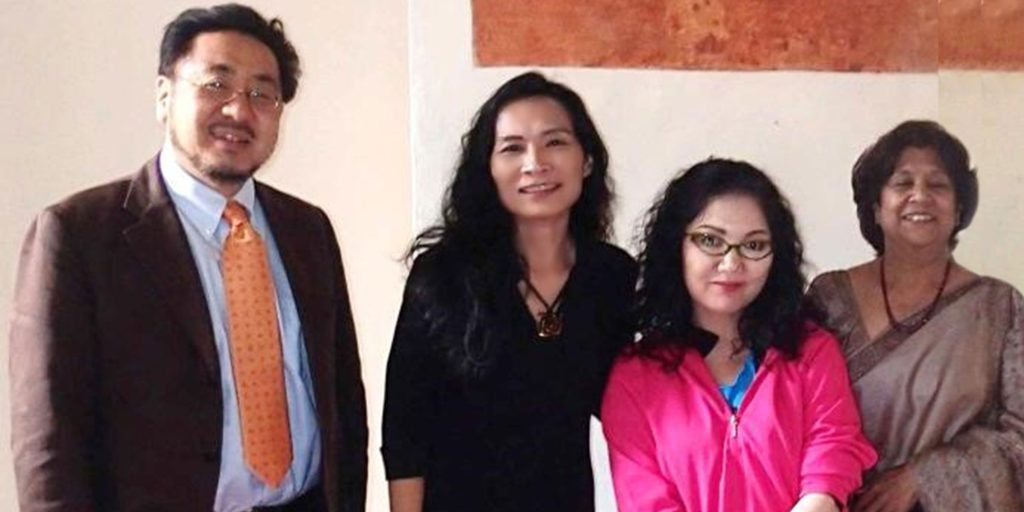
In November, Asian Shakespeare Association Inc. was formally registered as an NGO in the Philippines, hosted by the Department of English and Comparative Literature of the University of the Philippines Diliman.
In December, Judy Celine Ick convened “Shakespeare in Asia,” an ASA “pre-conference,” on campus.
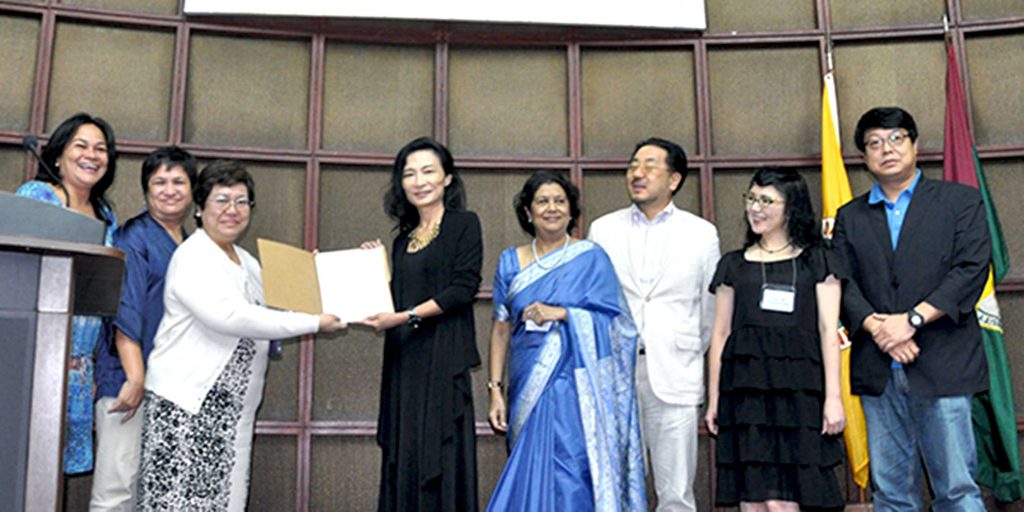
2014
Registration for the inaugural conference opened online in January. Featuring invited speaker Rustom Bharucha, Peter Holbrook, Ing K., Kawachi Yoshiko, Dennis Kennedy, Lena Cowen Orlin, Ching-Hsi Perng, and Shen Lin, “Shakespearean Journeys” convened in May. Over a hundred delegates from around the world gathered at National Taiwan University and National Taiwan Normal University in Taipei. In addition to the academic program, Four live performances, including Sintang Dalisay from the Philippines and Nomad Lear from South Korea, were staged. There were also two performing workshops, digital exhibits, guided nature and culture tours, and social events.
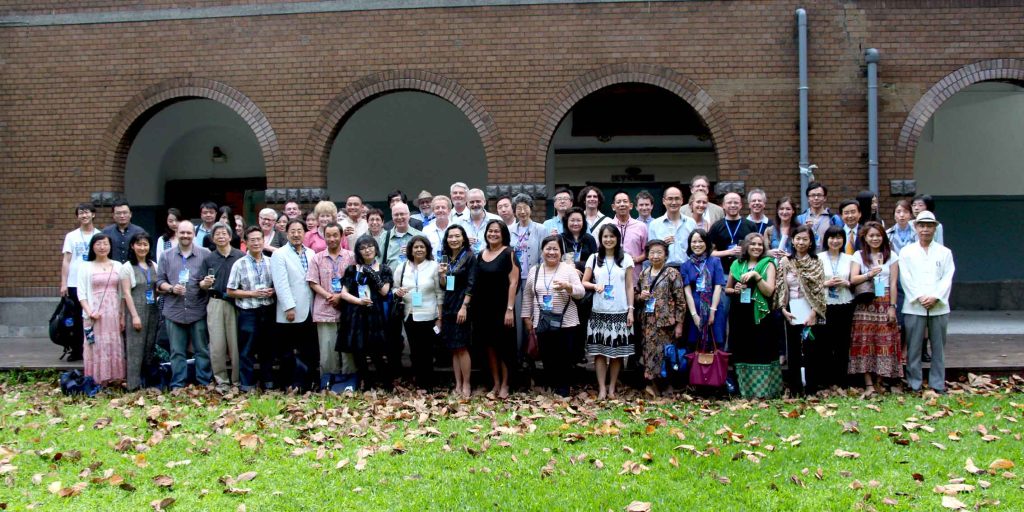
2016
In August, during the World Shakespeare Congress held in Stratford-upon-Avon, the ASA organized a cash bar at the Shakespeare Birthplace Café and Garden to foster communication with global Shakespeareans to invite people to join.
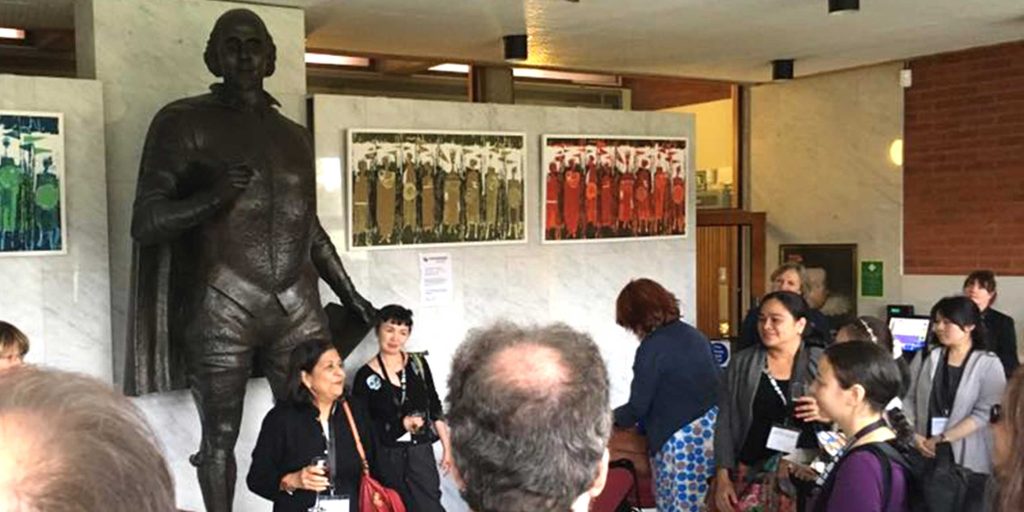
In December, “All the World’s His Stage: Shakespeare Today,” the second ASA conference, was held in New Delhi, featuring keynote speakers Sukanta Chaudhuri, Christy Desmet, and Michael Dobson. The highlights of the conference were three live performances showcasing diverse Indian Shakespeares, and the screening of Veeram and the puppet Hamlet. In addition, manga artist Sanazaki Harumo led a workshop on graphic Shakespeare.
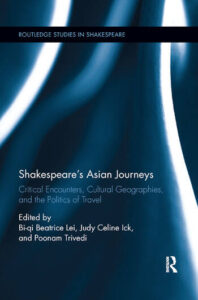 Shakespeare’s Asian Journeys: Critical Encounters, Cultural Geographies, and the Politics of Travel, a collection of selected papers from the inaugural ASA conference edited by Bi-qi Beatrice Lei, Judy Celine Ick, and Poonam Trivedi and published by Routledge, was also pre-launched at the conference.
Shakespeare’s Asian Journeys: Critical Encounters, Cultural Geographies, and the Politics of Travel, a collection of selected papers from the inaugural ASA conference edited by Bi-qi Beatrice Lei, Judy Celine Ick, and Poonam Trivedi and published by Routledge, was also pre-launched at the conference.
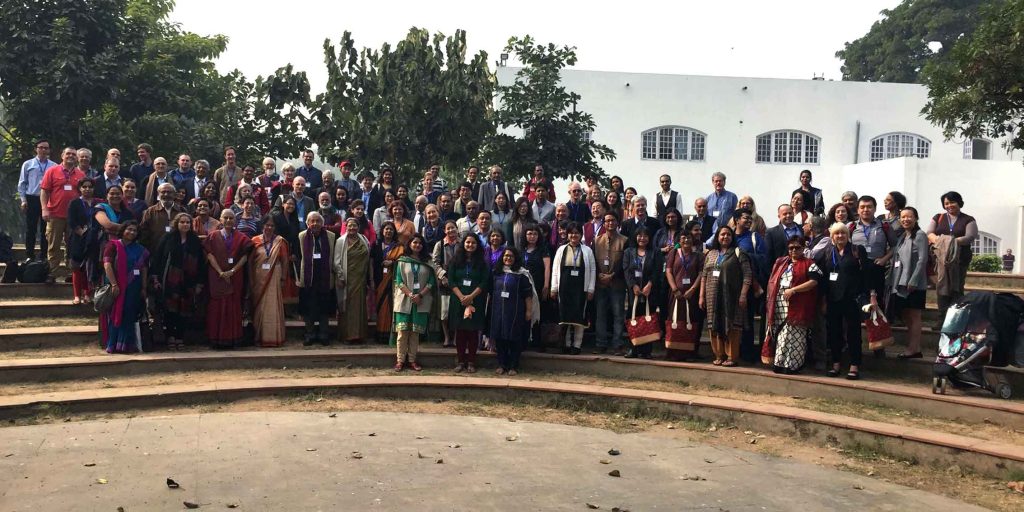
2017
In January, with the retirement of Alexa Alice Joubin, Luo Yimin, and Ching-Hsi Perng from the Executive Committee, the ASA held its second general election. Ricardo G. Abad (Philippines), Lee Hyon-u (South Korea), and Yong Li Lan (Singapore) joined to form the Second Executive Committee.
In July, the ASA launched a new website with more features.
2018
In May, “Shakespeare, Traffics, Tropics,” the third ASA conference, was held at the University of the Philippines Diliman and Ateneo de Manila University in Manila, with Peter Holland as the keynote speaker. In addition to organizing the conference, Ricardo G. Abad and Judy Celine Ick also performed in RD3RD, a brilliant adaptation of Richard III co-directed by Anton Juan and Ricardo G. Abad, reflecting contemporary politics. Yasuda Masahiro, Artistic Director of Japan’s Yamanote Jijosha, brought a recording of his acclaimed The Tempest and a rigorous acting workshop.
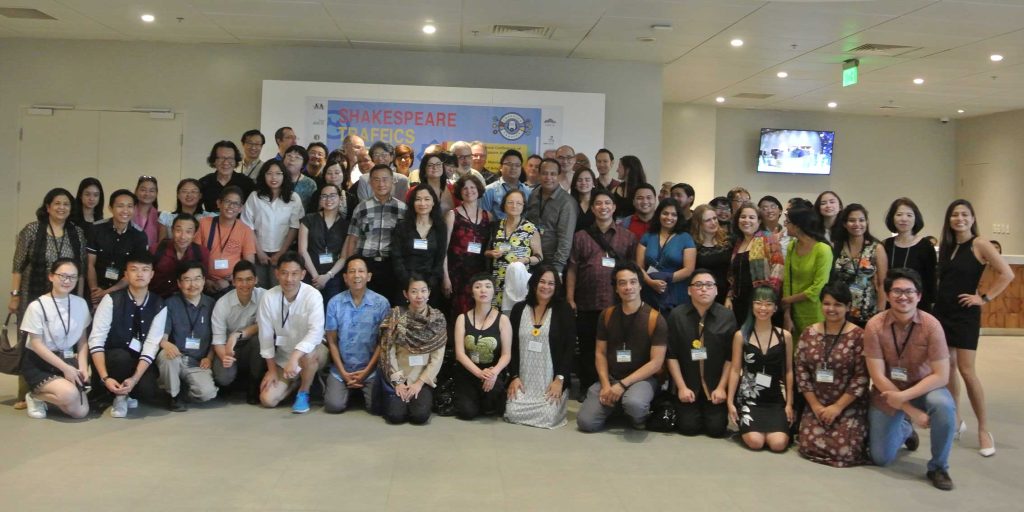
2020
In 2020, Covid raved the entire globe, shutting down schools, businesses, and conferences and theatres. In September, the ASA co-hosted with Digital Theatre+ a webinar “Teaching Shakespeare Online: International Collaborative Conversations,” organized by Christie Carson, to help colleagues manage this unprecedented crisis.
“Intersections in Shakespeare,” the fourth ASA conference that was scheduled to take place in Seoul in November, became a hybrid event—all internationals attended virtually. The Shakespeare Association of Korea overcame enormous logistical, technical, and financial obstacles to create a successful experience for in-person and remote attendees, involving live performances and social interaction.
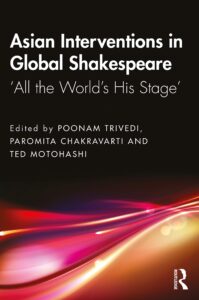 At the conference the ASA also launched Asian Interventions in Global Shakespeare, a collection of selected papers from the second ASA conference edited by Poonam Trivedi, Paromita Chakravarti, and Ted Motohashi, published by Routledge.
At the conference the ASA also launched Asian Interventions in Global Shakespeare, a collection of selected papers from the second ASA conference edited by Poonam Trivedi, Paromita Chakravarti, and Ted Motohashi, published by Routledge.
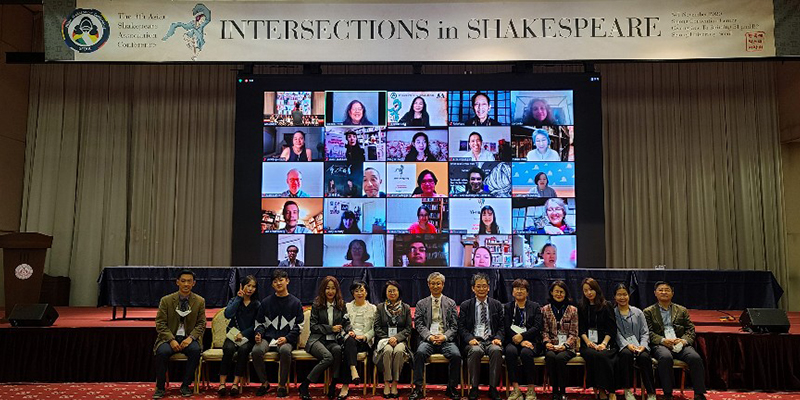
2022
In the aftermath of the pandemic, under lingering travel restrictions and widespread funding cuts, the ASA once again moved the conference online. “Unmasking Shakespeare” featured the keynote speaker Alfredo Michel Modenessi and the performing artist Choi Ji Young. A roundtable “New Directions in Asian Shakespeare” involved heated debates on the varied concepts of Asia, Shakespeare, and Asian Shakespeares. In addition to traditional panels, the “Symposium” format consisting of multiple short papers offered a novel platform for delegates to test out their ideas and share their work-in-progress.
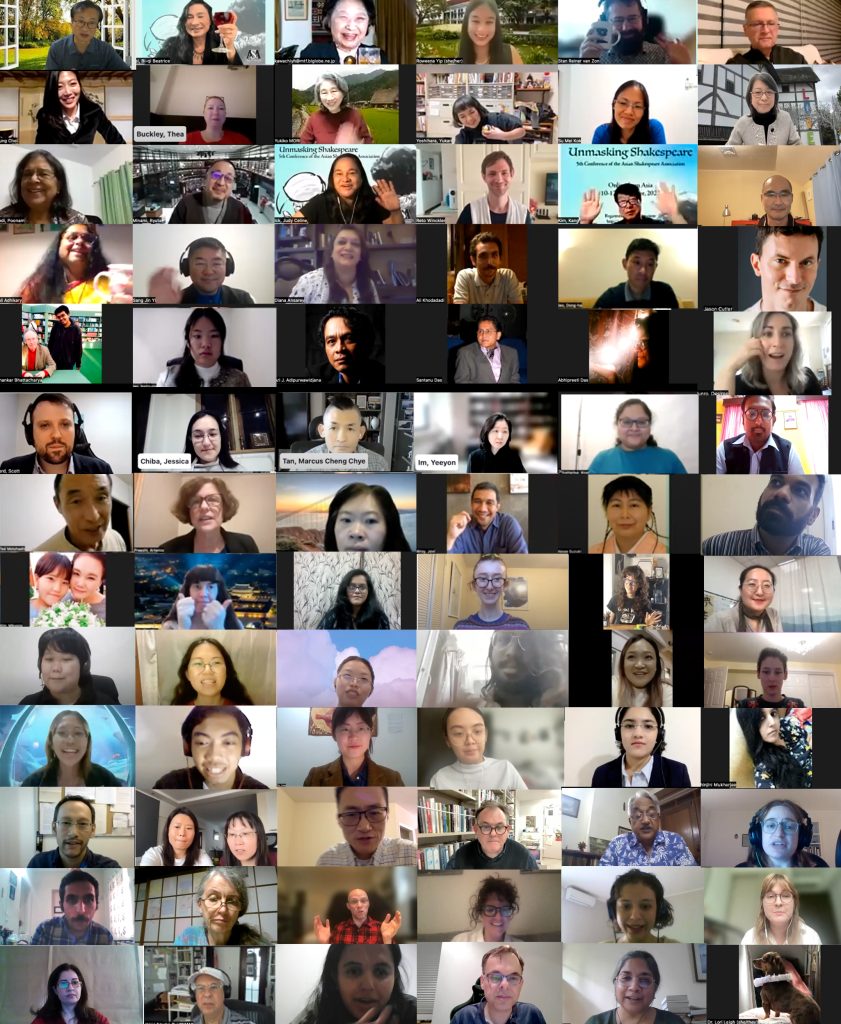
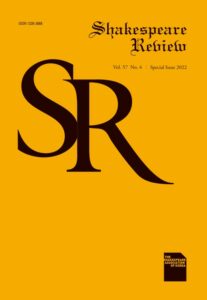 Selected papers from the fourth ASA conference were published as “Intersections in Shakespeare,” a special issue of Shakespeare Review issued by the Shakespeare Association of Korea.
Selected papers from the fourth ASA conference were published as “Intersections in Shakespeare,” a special issue of Shakespeare Review issued by the Shakespeare Association of Korea.
2023
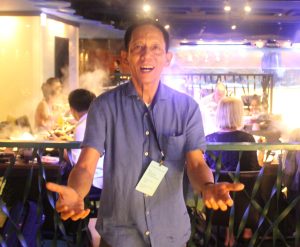
The ASA mourned the loss of Ricardo G. Abad—a cherished founding member, dedicated Executive Committee leader, and longtime Treasurer whose contributions left an enduring legacy.
2024
After several years of disruption and isolation, the ASA finally resumed in-person gathering and returned to the Philippines. “Shoreline Shakespeares,” the sixth ASA conference was held in Iloilo in December, with keynote speakers Karen Raber and Ted Motohashi. Titus Tan, a bold, contemporary adaptation of Titus Andronicus, speaks to local and national politics. The forum scene from Caesar’s Maze was a bilingual, bicultural experiment with Anton Juan enacting Brutus in Shakespearean English and Wu Hsing-kuo playing Antony in Chinese opera.
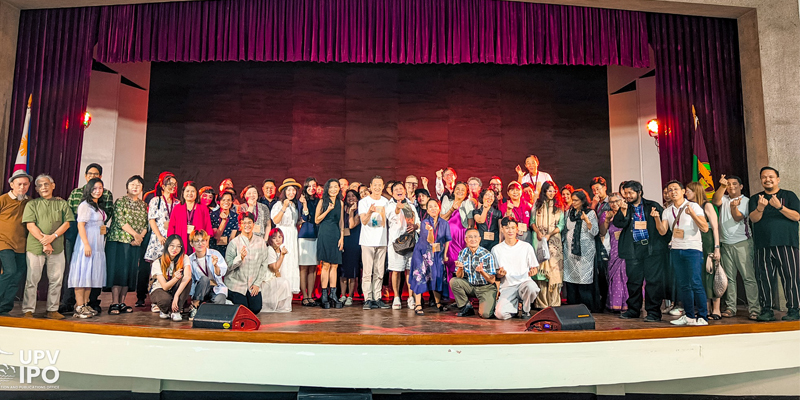
2025
To fill the vacancies left by the loss of Ricardo G. Abad and the retirement of Minami Ryuta, the ASA launched an online election for two Executive Committee Members. Jason Eng Hun Lee (Hong Kong) and Ted Motohashi (Japan) won the election.
